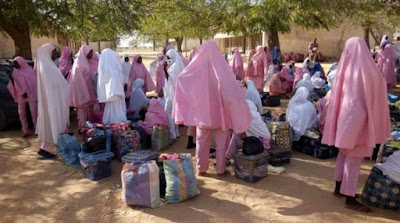By
Rotimi Fasan
President
Muhammadu Buhari sits atop a government that is very divided. The
administration is apparently in confusion with close members at war with one
another. The confusion that has resulted in Buhari’s warring and, one might
say, fumbling administration began, it can now be said with insight, when the
president decided to form a so-called kitchen cabinet of close associates and
relatives, persons directly or indirectly connected to him by marriage, blood
or religion.
 |
| *Buhari |
These people feel answerable only to the
president and exploit their closeness to the president to wrongfoot his
policies including his arrowhead anti-corruption war. The president’s
self-inflicted injury was exacerbated by a National Assembly that was dominated
by a divided All Progressives Congress, APC, whose members elected a leadership
that has enjoyed neither the support nor trust of the party leaders.
The frosty relationship that this would
engender between the legislators and the executive arm of the administration
(particularly the presidency and anyone thought to be connected to it) can be
seen in the fate that has befallen Ibrahim Magu in his failed bid to be
confirmed as chair of the Economic and Financial Crimes Commission, EFCC.
But I’m a bit ahead of my explanation. So let
me return to how President Buhari brought all this upon himself and what this
now implicates for his government. Muhammadu Buhari The first appointments made
by Buhari were of a nature that got many Nigerians complaining given its
lopsided arrangement. The appointments, mostly of his immediate minders, were
almost to the last person made up of Muslim men of northern extraction. It both
reflected as well as demonstrated a tendency for mind-closure and parochialism.
But this was apparently lost on the president
who couldn’t be bothered about it, not even the fact that the Igbo presence in
the government is almost of cipher value. He ignored all questions raised about
this and, when he chose to respond, simply went ahead to defend the
appointments, explaining it all in terms of the pattern of votes that got him
elected.













































